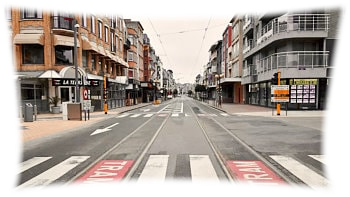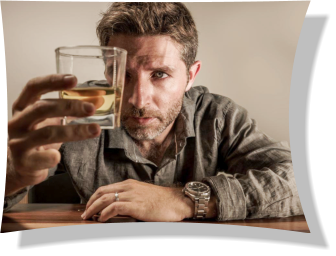








‘Knowledge is power’

MIDDLE EAST
World’s
encyclopedic
knowledge
compacted
in
your
hand




Please send your comments directly to the author of the article
Raise the vol to listen to the
lady airing awe @ the SINGLE author ncyclopedia
You may also like:
Disturbing stats on black-white inequality
Now girls are a THIRD more likely to go to university than boys
Sound effect: Bhajans (Hindu faith songs) helping Autism
Lessening productivity 50% of Americans have worked with a hangover
Scientists say fist bump is healthier than handshake ?Hug & kiss
Meet Darknet, the hidden underbelly of the searchable Web
3. The Lock-down:
Not having the ability to safely change colors like the chameleon in the fight or flight reflexes that homo
sapience show when facing danger - the government saw goodness in the defensive mode of the
tortoise – exactly like the Italians.
Now, almost like the rights and privileges of Prince Phillip, everything was a no. Stay at home was the
law and breaking that was only for essentials like shopping, work, or medicine. The world of gatherings
e.g. holidays, cinema, live music, dances even building work was a no. But hospital staff and suppliers
could gather, for if they didn’t we would not be living.
While the hospitals brought about sadness alone apart from a few cheerful claps for recovered patients,
the allowed supermarkets did fill YoutTube and TikTak with amusing videos. But, as if getting lessons
from the stocks and shares, fear descended on the
ordinary denizens and stocks
there vanished too - for need and for later profit.
However, the scarcity of masks and antiseptics was
understandable, but not quite that of the toilet papers.
Yes the lock-down did bring about an R0, but it was not
without problems.
A. Problems With The Lock-down For All:
The Thought Changes:
With pubs, gym and any leisure outing put off, people
had
both fear and no choice but to lock themselves up in their houses. Convicts know, being locked up does
not bring about good feelings. It’s because of that both psychiatrists and psychologists know - a locked
up mind doesn’t choose the normal route to decisions. And when it does so, phobia comes in. It
changes to depression and when an opportunity comes in, it does a suicide of the mind and then of the
body. Sadly death alone celebrates.
But, the fear most people had wasn’t a phobia; it was real. Yes, the fear was of losing a job, of not being
able to pay the mortgage, of food scarcity, of getting the disease, and of the death itself. As usual,
poverty brought more tragedies than affluence did. All being equal, fear of having the disease and
spreading it to one’s family gripped the hospital workers more. Let’s not forget the nursing home workers
where the death occurred more.
The Jobs:
Not only companies upgrading ‘lay off’ to ‘furloughed’, but as if bringing capitalists and socialists
together the company’s less earning would bring fear to the owner and the employee in unison. A wrong
union for Marx! While doing an interacting job itself would bring fear of getting the disease, treating sick
especially when unprotected would make the medics, dead body dealers, and cleaners rather shaky.
While dealing with +ve patients would bring the fear of possibly being positive, the fear of transmitting it
to families would bring in guilt too. Even animals didn’t feel good because of being unemployed.
The Housing:
While some corona +ve people would isolate themselves, seek no outside help fearing its transmission
to families & neighbors, and die unnoticed and undignified, those living in crowded houses could see
little meaning of keeping a safe distance in their ways.
The Food:
In the three necessities of life viz. food, clothing, and shelter, the allowed 1st even had its own woes.
While supermarkets offered safe distance buy, and click and collect, the poor were having problems.
Beyond the fear of not getting food, people actually did not have food like in Italy - if government or
charities didn’t help.
While low vitamin D level was a concern for the long term, high
alcohol intake (30% rise) was the concern in the short term.
While drinking and driving have always been dangerous,
drinking and staying at home with stress would not be any less.
Seeing a rise in domestic violence, almost airing ‘do as the
Romans do’ Italians even invented a code for any woman to
use in pharmacy while seeking help. . Abuse born by parents
from kids, however, remains silent.
Outside wasn't very good either. Although companies still
maintained profits using Net and small staff, those that offered
essential services like hospitals (doctors to cleaners), food,
security, and postal services gave their staff no choice to work
from home. In fact, they were the busiest people and were
dangerously interacting with people but were given little protection. Patients got a raw deal too.
Whereas the US poor didn't seek medical help fearing bills, adding disfavor to a sick NHS, oxygen
lacking UK hospitals said no to admission seeking elderly.
Apart from some clapping scenes of successful recovery, only sad news of increasing deaths of patients
and +ve blood results of grossly unprotected staff came from hospitals. But, postal delivery that was put
outside the doors, if not bills, still excited people. But then, opening them needed a battle cry - lest they
are infected. Although they rarely shared the good news, the news from the nursing homes was worse.
This is more so because elderly sick are sent there to die.
To add more insult to injury, because of the paucity of diagnostic kits the actual number of positive cases
are only the tip of the iceberg. Even the deaths may be attributed to other causes than viral infection.
Yes, it sounds terrible but then, tracing two sides of the coin, this scary never-ending epidemic has
brought in something good too.


The Wuhan Coronavirus Saga: Post Global Social Financial And
Medical Havoc Will COVID-19 Make us Extinct Like
The Dinosaurs?
CONTENTS


1. The Danger We Face 2. The Disease And Global Spread 3. Work From Home 4. Bad Effects of
Lockdown 5. Good Effects of Lockdown 6. Effects on Faiths 7. Preventive Measures 8. How to Deal
With Groceries & Posts 9. Conspiracy Theories 10. Future: Relax Lockdown 11.Segregation The
Only Way 12. Anarchy & End of Life if Not 13. Inactive Scientists

WOMEN’S POWER: ITS PAST, ITS PRESENT, ITS FUTURE: FEMOCRACY
WEB PAGES
OUR OFFERING
UPLOADED ITEMS
OUR EMAIL
kri200@womenspowerbook.org
QUESTION


















